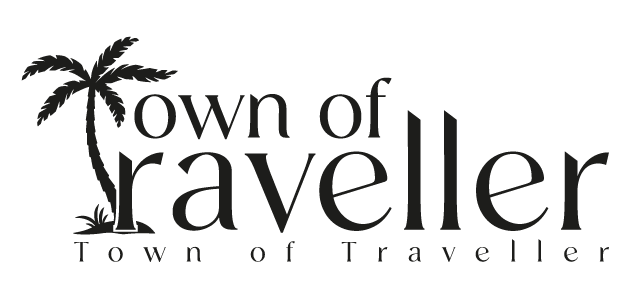Being a traveling writer often conjures images of picturesque landscapes, bustling markets, and coffee shops brimming with inspiration. But while the allure of penning words from exotic locations may seem appealing, the question remains: is it a feasible career path? This article delves into the various aspects of being a traveling writer, examining opportunities, challenges, and strategies for success.
The Allure of Travel Writing
Travel writing invites individuals to explore the world while expressing their experiences through words. Whether for magazines, blogs, or books, many dream of documenting their journeys and sharing them with readers. The blend of travel and writing offers not just adventure but a chance to immerse oneself in diverse cultures, meet new people, and create memorable experiences.
Many travel writers share firsthand accounts of their adventures, offering insights and recommendations that can be incredibly valuable to readers. This narrative storytelling adds a personal touch, transforming basic travel guides into engaging tales. Consequently, the genre appeals to both aspiring writers and seasoned authors seeking to break into a lifestyle that merges travel with creativity.
Opportunities in Travel Writing

The world of travel writing is broad and diverse, offering various avenues for aspiring writers. From publishing articles in travel magazines to creating personal blogs or social media channels, the opportunities are endless. Many online and print publications consistently seek talented writers to contribute stories and experiences, sometimes offering compensation while other opportunities may be unpaid but help secure exposure.
In recent years, digital nomadism has transformed traditional travel writing, enabling writers to work remotely and share their experiences in real-time. Blogging has gained immense popularity, allowing writers to build their brands and connect directly with their audience. Many successful travel bloggers monetize their platforms through affiliate marketing, sponsored posts, and digital products.
Additionally, travel content creation extends beyond writing. Many travel writers supplement their income by engaging in photography, video production, or social media influencing. Capturing stunning visuals of destinations can enhance their narratives and attract a larger audience, leading to more opportunities and collaborations with brands and tourism boards.
What Can You Expect at the Nude Beach in Couples Negril?
By Town Of Traveller
Challenges Faced by Travel Writers
Despite the seductive charm of travel writing, the career path is not without its challenges. Financial instability ranks high among the difficulties. Many aspiring travel writers start in freelance positions or contracts that may not provide a steady income. Building a portfolio and gaining recognition takes time, making it crucial for individuals to be financially prepared before venturing into this field.
Moreover, the competition in travel writing is fierce. With the rise of social media and accessible platforms, countless individuals are vying for readers’ attention. This oversaturation makes it vital for writers to find a unique voice or niche to stand out from the crowd. Crafting a distinct style and offering fresh perspectives can often be the keys to success in an ever-changing landscape.
Equally important is the nature of travel itself, which can be unpredictable and demanding. Constantly adjusting to new environments and cultures can take a toll on mental and physical well-being. Long hours spent researching, budget constraints while traveling, and potentially unreliable internet connections can complicate the writing process.
Skills and Qualities Required
To thrive as a traveling writer, certain skills and qualities are essential. A strong command of language, creativity, and storytelling ability are fundamental. Travel writing often blends descriptive narrative with practical advice, requiring writers to analyze their experiences and convey insights in an engaging manner.
Research skills are also paramount. Writers must gather accurate information about destinations, culture, and local customs. Being well-informed enhances credibility, allowing readers to trust in the writer’s recommendations.
Additionally, adaptability and resilience are crucial for navigating unpredictable travel situations. Whether dealing with delayed flights, language barriers, or navigating unfamiliar places, maintaining flexibility will greatly enhance both the travel experience and overall productivity as a writer.
Building an Audience

Establishing a dedicated readership is essential for anyone serious about being a traveling writer. Building an audience can begin with starting a blog or social media accounts to share travel experiences and insights. Utilizing platforms like Instagram, Twitter, or Facebook creates opportunities for engagement, allowing individuals to connect with fellow travelers and writing enthusiasts.
Consistency is critical when growing an audience. Regular posting and sharing authentic experiences help foster a loyal following. Engaging with readers through comments or social media interactions can build community and encourage discussions, enhancing the overall experience for both the writer and their audience.
Networking within the travel writing community is another way to expand an audience. Attending conferences, workshops, or local meetups can provide valuable connections and collaborations. Through building relationships with other writers, travel agencies, or brands, aspiring writers can open doors for new opportunities.
Monetization Strategies
Travel writers often seek ways to monetize their content effectively. Affiliate marketing presents one of the most popular avenues. By promoting travel-related products or services through blog posts or social media, writers can earn commissions on sales generated through their unique links.
Sponsored content and partnerships with tourism boards or travel agencies serve as additional sources of income. Writers may collaborate with these organizations to create engaging content that showcases destinations while receiving compensation in return. It’s crucial for writers to maintain authenticity and transparency when working with brands, ensuring that their recommendations align with their values and audience interests.
Another route involves creating and selling digital products like e-books or travel guides. This self-publishing approach allows writers to share comprehensive guides based on their experiences, providing value to readers while generating revenue simultaneously.
Conclusion
In conclusion, while the idea of being a traveling writer may seem enticing, it is essential to recognize both the opportunities and challenges inherent in this career path. From building an audience to navigating financial uncertainty, aspiring writers need to approach this field with realistic expectations and a solid strategy. The journey requires creativity, persistence, and a genuine passion for travel and storytelling.
For those willing to invest time and energy, travel writing can be a fulfilling endeavor, offering a unique blend of personal growth and professional achievement. The potential to share stories, connect with others, and experience the world alongside writing creates various possibilities that can lead to a rewarding career.
FAQs
1. Do I need to have a degree in writing or journalism to become a travel writer?
While having a degree can be beneficial, it is not strictly necessary. Many successful travel writers come from diverse backgrounds. What truly matters is your talent for writing and storytelling, along with your experiences.
2. How can I get my work published as a travel writer?
Starting with submitting articles to travel magazines, blogs, or online platforms is a common approach. Tailoring your pitches to each publication and showcasing samples of your writing can increase your chances of acceptance.
3. Is travel writing a sustainable career?
Travel writing can be challenging. While some writers achieve financial success, many start with unstable incomes. It often requires diversifying income streams, such as freelance writing, blogging, photography, or content creation.
4. What type of experiences should I write about?
Anything that resonates with you! Personal travel experiences, cultural interactions, budget travel tips, food, or adventure experiences can all serve as engaging topics. Authenticity in storytelling often captivates readers.
5. How important is social media for a travel writer?
Social media plays a significant role in establishing a brand and connecting with audiences. It allows travel writers to share real-time updates, engage followers, and showcase their work through visuals and narratives.







